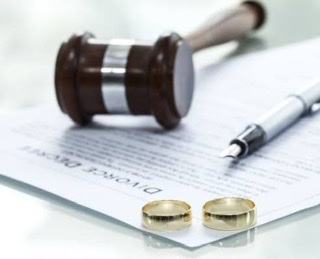
Boşanmada Neler Delil Olarak Kullanılabilir?
Eşlerden birinin açmış olacağı boşanma davasında öne süreceği deliller çok önemlidir. Davacının öne sürdüğü boşanma sebebini kanıtlayamadığı takdirde davası reddedilecektir. Bu nedenle delil çok önemlidir, delillerin hukuka uygun olması gerekmektedir. Davacı, aldatıldığını ispatlamak istiyor ise davalı eşinin telefon kayıtlarının çıkarılmasını mahkeme kanalıyla talep edebilir. Her ne kadar davalı eşinin telefon kayıtlarından ne konuştuğu ya da ne yönde mesajlaştığı çıkarılmasa da sık sık kimle görüştüğü görülebilmektedir. Bunun yanında davalı ile üçüncü kişinin otelde kaldığına dair duyum alan davacı, davalının otel kaydının çıkarılmasını da isteyebilmektedir. Boşanma davasında, önemli olan ispat olup delil yelpazesi geniş olan dava türlerindendir. Hukuka uygun olmak koşulu ile mahkemeye birçok delil sunulabilir.
Delil olarak kullanılabilecek argümanlar nelerdir?
-
SMS
-
Fotoğraflar
-
Instagram, Twitter, Facebook gibi sosyal medya paylaşımları ve mesajları
-
Otel kayıtları
-
Kamera görüntüleri
-
Whatsapp konuşmaları
-
Notlar, yazışmalar
-
Tanık
-
Bilirkişi incelemesi
-
Mahkeme ilamı
-
Ekonomik ve sosyal durum araştırması
-
Kolluk araştırması
-
Banka ya da kredi kayıtları
-
Başkaca mahkeme dosyaları
-
Pasaport giriş çıkış kayıtları
Boşanmada Neler Delil Olarak Kullanılamaz?
Davada öne sürülen delillerin hukuka aykırı olmaması gerekmektedir. Bu nedenle delillerin nasıl ve hangi yollarla elde edildiği önemlidir. Örneğin; gizlice eşinin görüntülerini çeken kişi, bu deliller hukuka aykırı olduğundan mahkeme tarafından dikkate alınmaz. Mahkemede öne sürülen vakıaların ispatında özel hayatın gizliliği ihlal edilmemeli, kişinin onur ve haysiyetini zedeleyici deliller mahkemeye sunulmamalıdır. Taraflar, boşanma davasında iddia ve beyanlarını ispatlama gayesi altında suç işlememelidir. Boşanma davasında ispat edeceğim derken savcılıkta hakkınızda dosya açılmamalıdır.
Diğer bir husus da dedektiflik hizmetinden yararlanarak boşanma davasına delil toplatılmasıdır. Dedektif aracılığıyla delil toplatılması yasal değildir. Özellikle eşinin kendisini aldatıyor şüphesi ile dedektif tutan ve eşini takip ettirerek fotoğraf çektirenler bulunmaktadır. Ancak dedektiflik, özel hayatın gizliliğinin ihlali suçun unsurlarını oluşturmaktadır. Dedektif ile eşiniz aleyhine delil toplatılması yasaya aykırı bir durum olup risk taşımaktadır.
Alanya Boşanma Avukatı, Alanya Boşanma Davası Avukatı, Alanya Avukat, Alanya Hukuk Bürosu, Alanya Avukatlık, Mal Paylaşımı, Nafaka, Velayet, Alanya Anlaşmalı Boşanma Davası, Anlaşmalı Boşanma
Benzer İçeriklerimize Göz Atın:
- 2024 Yılında Gayrimenkul Yatırımı Yoluyla Türk Vatandaşlığı Almak İçin Kapsamlı Rehber
- Türkiye'de Yabancılar İçin Mülk Edinme Rehberi: Adım Adım Hukuki Süreç
- Türkiye'de Oturma İzni (İkamet Tezkeresi) Nasıl Alınır? Yabancılar için Kapsamlı Rehber 2024
- Taşınmaz Yatırımı Yoluyla Türk Vatandaşlığı Kazanımına İlişkin Kapsamlı Rehber
- Türkiye'de Yabancılar İçin Mülk Edinme Kapsamlı Rehberi
- Türkiye'de Yabancılar İçin Gayrimenkul Alımı: Adım Adım Kapsamlı Rehber
- Yatırım Yoluyla Türk Vatandaşlığı: Kapsamlı Rehberiniz
- Türkiye'de Tüketici Hakları: Ayıplı Mallarla Karşılaşan Yabancılar İçin Bir Rehber
- Türkiye'de Yabancılar İçin Alacakların Tahsili: İcra Takibi Süreci
- Türkiye'de Vergi Hukuku: Yabancılar İçin Vergi Yükümlülükleri Rehberi
- Türkiye'de Tıbbi Uygulama Hataları (Malpraktis) ve Yabancı Hasta Hakları
- Türkiye'de Yabancılar İçin Vasiyetname Hazırlama: "Saklı Pay" Kuralını Anlamak
- Türkiye'de İsim Denklik Belgesi: Yabancılar ve Çifte Vatandaşlar İçin Bir Rehber
- Türkiye'de Yabancılar İçin Alacakların Tahsili: İcra Takibi Süreci
- Türkiye'de Yabancılara Karşı Açılan Tahliye Davaları: Kiracı Hakları ve Yasal Süreçler
- Yabancı Mahkeme Kararlarının Türkiye’de Geçerli Hale Getirilmesi: Tanıma ve Tenfiz Süreci
- Türkiye’de Yabancıların Karıştığı Trafik Kazaları ve Hukuki Süreç
- Kazanılmış Türk Vatandaşlığının Kaybedilmesi: Hukuki Gerekçeler
- Türkiye'de İşten Çıkarılan İşçilerin Tazminat Hakları
- Türkiye’de Yabancıların Tahkim Yoluyla Uyuşmazlık Çözümü
- Yabancılar Açısından Türkiye’de Ticaret Hukuku ve Şirketler Hukuku
- Türkiye’de Yabancıların Çalışma İzni Reddi ve İtiraz Süreci
- Yabancılar İçin Türkiye’de İdari Para Cezalarına İtiraz Yolları
- Türkiye’de Yabancıların Vekaletname Çıkarması: Hukuki Gereklilikler
- Yabancılar İçin Türkiye’de Boşanma ve Nafaka Davaları
- Türkiye’de Yabancıların Ceza Hukuku Açısından Hakları ve Sorumlulukları
- Yabancıların Türkiye’de Adil Yargılanma Hakkı
- Türkiye’de Kat Mülkiyeti Kanunu ve Yabancılar İçin Önemi
- Yabancıların Türkiye’de Arsa ve Tarla Satın Alırken Karşılaştığı Hukuki Kısıtlamalar
- Miras Hukuku: Türkiye’de Yabancılar İçin Veraset ve İntikal İşlemleri

 Türkçe
Türkçe  İngilizce
İngilizce  Almanca
Almanca Rusça
Rusça
